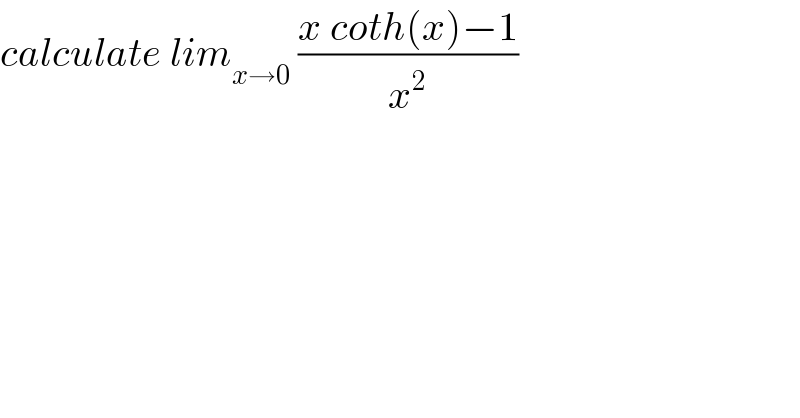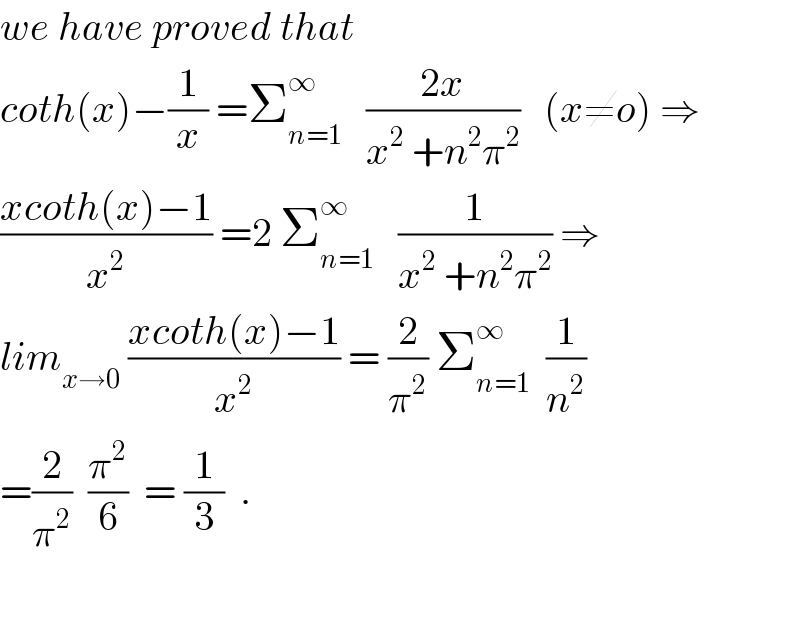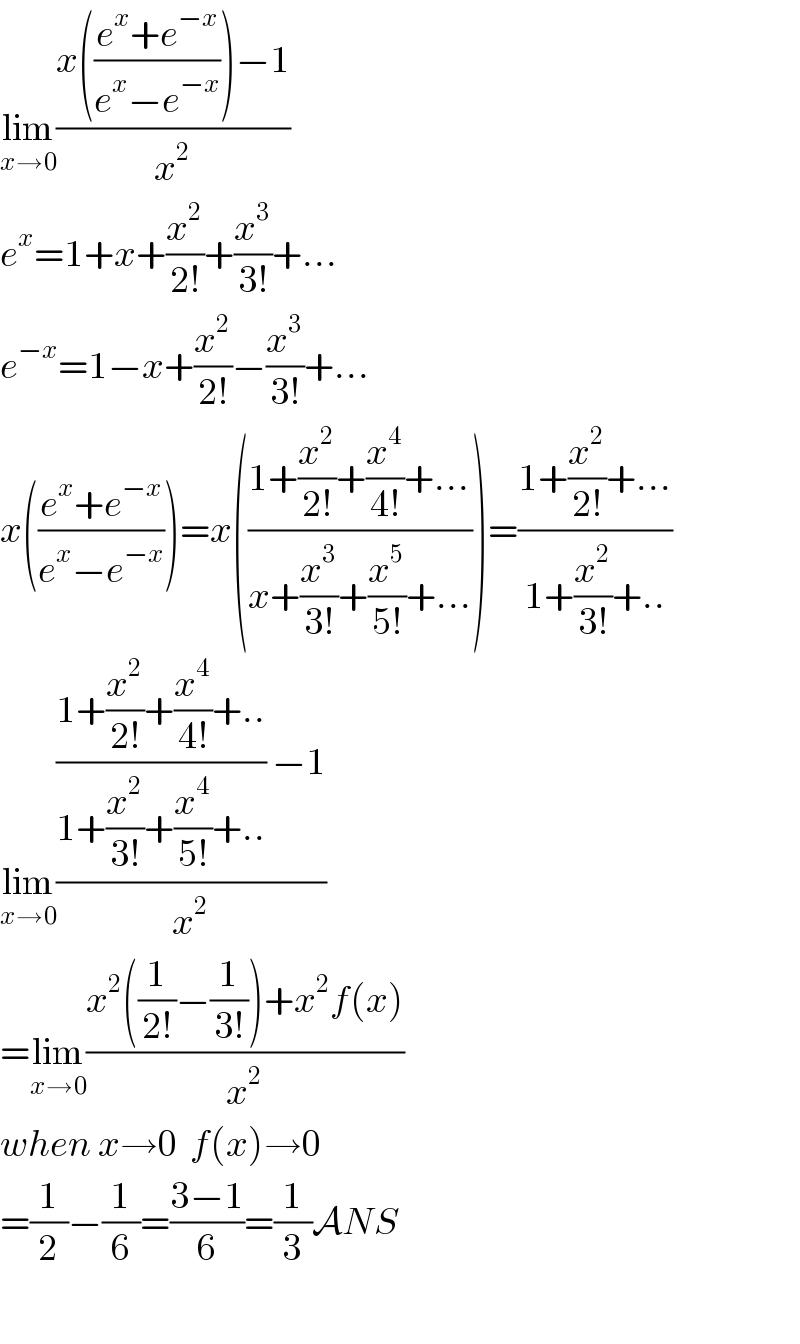
Question and Answers Forum
Question Number 38206 by prof Abdo imad last updated on 22/Jun/18

Commented by math khazana by abdo last updated on 25/Jun/18

Answered by tanmay.chaudhury50@gmail.com last updated on 23/Jun/18

| ||
Question and Answers Forum | ||
Question Number 38206 by prof Abdo imad last updated on 22/Jun/18 | ||
 | ||
Commented by math khazana by abdo last updated on 25/Jun/18 | ||
 | ||
Answered by tanmay.chaudhury50@gmail.com last updated on 23/Jun/18 | ||
 | ||
| ||